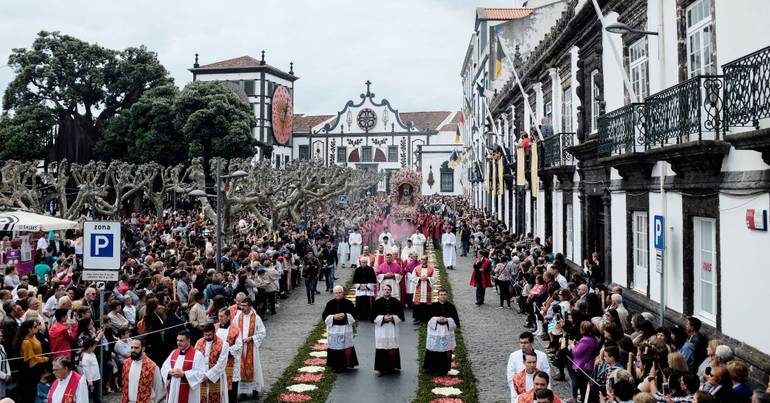

In a recent push to safeguard cultural traditions, the government of the Azores has called for a reduction in the costs associated with author rights, highlighting the importance of making cultural and popular events more accessible to local communities.
The right of authors grants the creators of intellectual property within the literary, scientific, and artistic fields the exclusive authority to manage their works, allowing them to use or license their creations in full or in part to third parties as they see fit. Such rights ensure that creators are rightly compensated for their contributions and that their intellectual property is protected from unauthorized usage.
However, the issue at hand is the financial burden that these rights can impose on those who wish to organize cultural events, particularly in a region celebrated for its vibrant feasts and festivities. These cultural events are pivotal to the Azorean community, fostering a sense of identity while promoting cultural traditions and economic vitality. Yet, the high costs of author rights can create barriers for smaller, local events to take place, potentially limiting community engagement and cultural expression.
In aiming for a progressive approach, the government of the Azores is advocating for a dialogue with the relevant authorities overseeing author rights. The goal is to explore possible adjustments where the costs are balanced in a way that continues to respect and protect the rights of creators, while also ensuring that community-led events can thrive without prohibitive financial hurdles.
Fostering cultural activities is central to the Azorean way of life. Popular festivals not only serve as a testament to the rich cultural heritage intrinsic to the islands but also play an essential role in the social and economic fabric. These events, featuring traditional music, art, and performances, provide a venue for local artists and cultural practitioners to showcase their work. They attract tourists and promote cultural exchange, contributing to local economies.
Simplifying the process and reducing the financial burden associated with author rights could have a significant positive impact on these communities. It would enable more frequent cultural gatherings, engage more participants, and preserve the rich tapestry of Azorean traditions. Potential developments emphasize the necessity for a well-rounded approach that balances the needs of cultural event organizers with the rightful protection of intellectual property.
As the dialogue continues, the Azorean government remains committed to finding sustainable solutions that honor both the creators’ contributions and the cultural vitality of its community. By harmonizing these interests, there is hope for a continued flourishing of cultural expression in the Azores, ensuring that generations to come can participate in and enjoy the rich traditions that have long characterized these beautiful islands.
In conclusion, this initiative stands as a hopeful example of how regions can adapt to contemporary challenges while preserving their identity and vibrant cultural heritage. Continued conversations between stakeholders may serve as a model for others facing similar circumstances, illustrating a collaborative path forward that respects both creators and cultural enthusiasts alike.
Source: {link}
